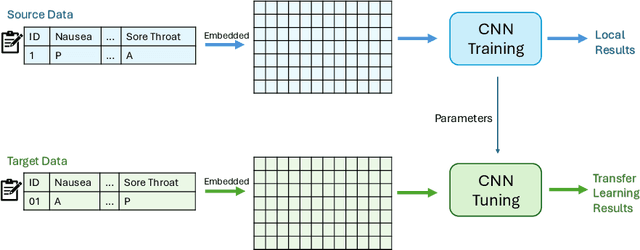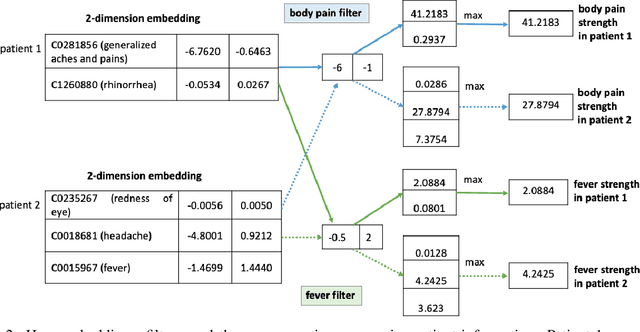Transfer Learning with Clinical Concept Embeddings from Large Language Models
Paper and Code
Sep 20, 2024



Knowledge sharing is crucial in healthcare, especially when leveraging data from multiple clinical sites to address data scarcity, reduce costs, and enable timely interventions. Transfer learning can facilitate cross-site knowledge transfer, but a major challenge is heterogeneity in clinical concepts across different sites. Large Language Models (LLMs) show significant potential of capturing the semantic meaning of clinical concepts and reducing heterogeneity. This study analyzed electronic health records from two large healthcare systems to assess the impact of semantic embeddings from LLMs on local, shared, and transfer learning models. Results indicate that domain-specific LLMs, such as Med-BERT, consistently outperform in local and direct transfer scenarios, while generic models like OpenAI embeddings require fine-tuning for optimal performance. However, excessive tuning of models with biomedical embeddings may reduce effectiveness, emphasizing the need for balance. This study highlights the importance of domain-specific embeddings and careful model tuning for effective knowledge transfer in healthcare.
 Add to Chrome
Add to Chrome Add to Firefox
Add to Firefox Add to Edge
Add to Edge